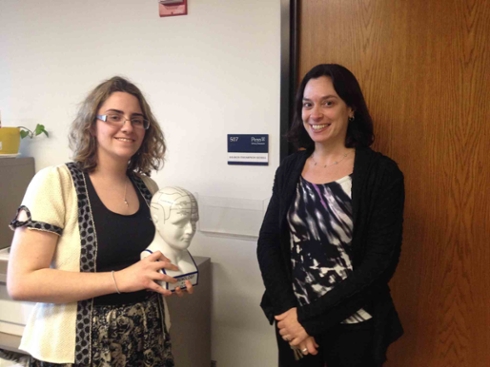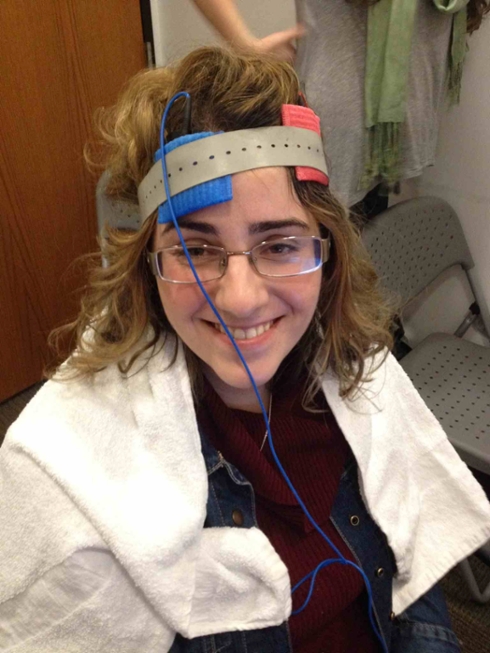Reed Winter Externship Reflections 14: Number Eleven, Thompson-Schill Lab at University of Pennsylvania, Caitlyn Hoeflin

There aren’t too many externships where they strap electrodes to your head. Not on the first day, at least.
But here I was, at 11 AM on a Thursday, listening to a cheerful senior rattle off instructions while gently attaching two large rubber pads to my scalp. While this may sound eerily like the start of a ‘50s science fiction movie, I was actually just a participant in a tDCS experiment, a form of neurostimulation in which constant, low-level current is delivered to the brain via small electrodes. tDCS changes the resting potential of neurons, making it harder or easier for them to fire. As a result, it can be used to temporarily increase cognitive ability in areas like memory and language.

I found myself in this study because of my externship at Professor Thompson-Schill’s lab at the University of Pennsylvania. This lab is dedicated to exploring the neural bases of memory and language. Over winter break, my fellow externs and I had the opportunity to meet with professors, postdoctoral students, research assistants, and undergraduates at Penn. These meetings were similar to Reed classes, but more concentrated; instead of spending an hour coming to grips with a paper, we spent an hour learning about someone’s research and career. In addition, we had the chance to participate in the lab’s studies. Throughout the externship, we also had the invaluable opportunity to talk to Professor Thompson-Schill about her life and research.
This externship was an amazing experience that I would recommend to anyone who is interested in neuroscience or cognitive psychology. It provided a rare opportunity to peek at the world of academic research and see techniques like tDCS and fMRI in action. Also, it was just plain fun! It’s a really inspiring.
g and humbling experience to spend several hours talking with someone who has spent years studying a particular area. Brain stimulation, neuroimaging, and science—what better way to spend winter break?

Tags: neuropsychology, research, psychology, fmri, eeg
